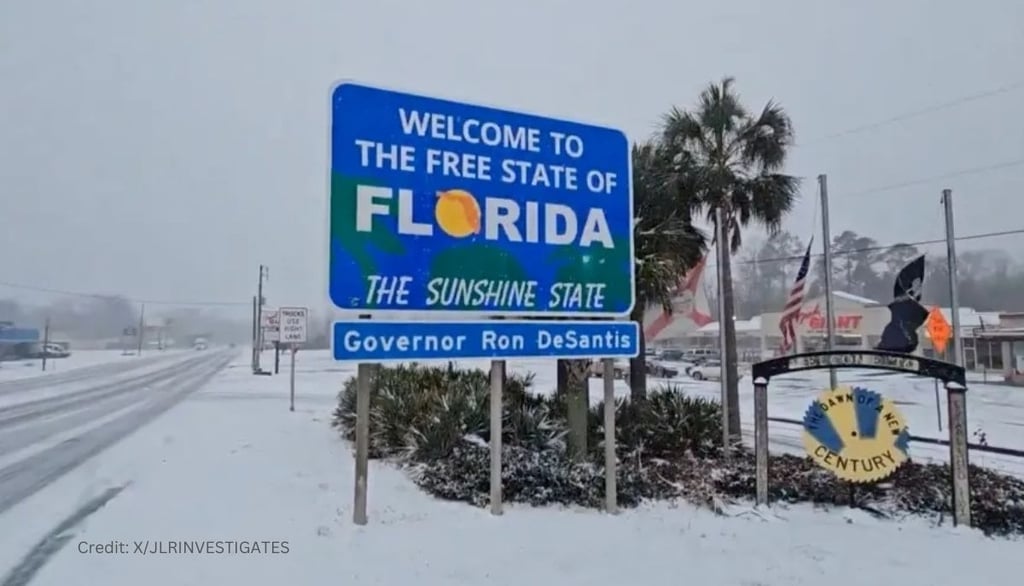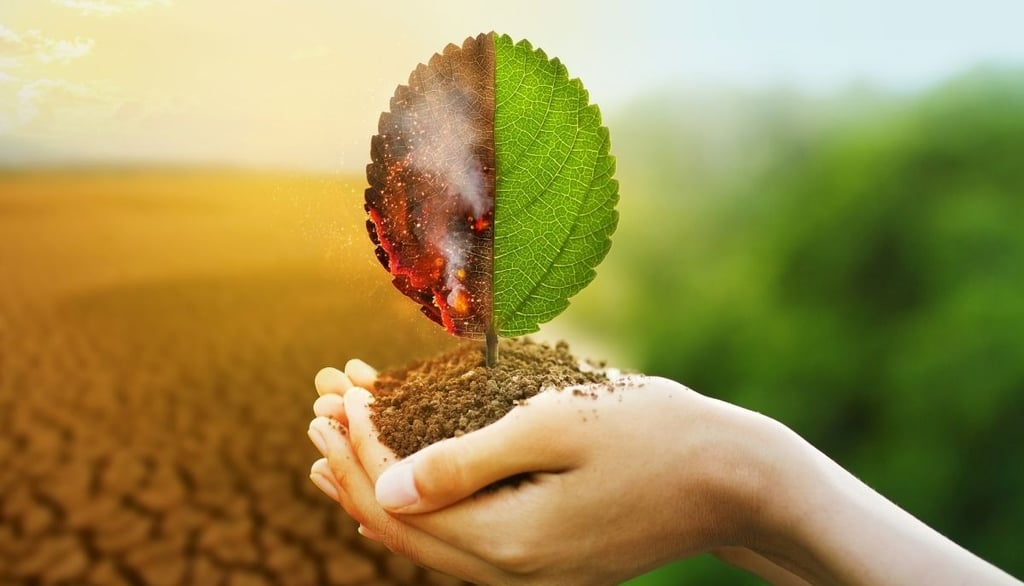How Climate Change Brings Snow to Florida and What We Can Do
Explore how climate change causes unusual snow in Florida, its global impact, and actionable solutions from eco-friendly diets to sustainable living.
1/22/20253 min read


Understanding the Impact of Climate Change on Extreme Weather Events
The recent snowfall in Florida, particularly in cities like Pensacola, Jacksonville, and Tallahassee, has astonished many residents. While Florida is known for its warm climate, unusual weather events like these are becoming more frequent due to the ongoing effects of climate change and global warming. The disruption of weather patterns, caused by rising global temperatures, has made rare occurrences like snow in Florida today more likely in the future.
Florida’s Unusual Snowfall: What’s Happening?
Historically, snow in Florida has been a rare phenomenon. Questions like "Is it snowing in Florida Pensacola FL?" or "When was the last time it snowed in Florida?" have surged in search interest, reflecting widespread curiosity. The answer lies in how climate change affects the jet stream—a powerful wind current that regulates weather patterns. As polar regions warm faster than other parts of the planet, the jet stream weakens and becomes wavier, allowing cold Arctic air to dip into regions like the southeastern United States.
Cities such as Milton, Florida, and Tampa have recently seen record-breaking drops in temperature. Tallahassee experienced snowfall, leading many to ask, "Did it snow in Florida today?" and "How much snow did Pensacola get?" This rare weather underlines the unpredictable nature of a warming planet.
Global Warming and Its Far-Reaching Effects
Global temperatures have triggered many consequences, including rising sea levels, more intense hurricanes, and disrupted ecosystems. While it may seem counterintuitive, snowstorms in Florida are directly linked to global warming's ability to destabilize normal weather systems.
Read more: Save Big with Plant-Based Diets
What Can We Do to Combat Climate Change Globally?
Addressing climate change requires coordinated global efforts to reduce greenhouse gas emissions. Here are critical strategies:
1. Transitioning to Renewable Energy
Fossil fuel combustion is the leading contributor to global warming. Governments and industries must prioritize the development of solar, wind, and geothermal energy, reducing reliance on coal and oil.
2. Reforestation and Afforestation
Planting trees on a large scale can absorb carbon dioxide, one of the primary greenhouse gases. Encouraging tree planting initiatives in urban areas like Pensacola, Florida, can also mitigate local temperature extremes.
3. Promoting Sustainable Transportation
Transportation accounts for a significant portion of global emissions. Electric vehicles, public transit, and micro-mobility options like electric scooters can replace traditional gas-powered vehicles, especially for short distances.
Individual Actions to Make a Difference
While global policies are essential, individual actions can significantly reduce carbon footprints. Here's how each of us can contribute:
1. Adopting an Environmentally Friendly Diet
Switching to a vegan or plant-based diet can reduce greenhouse gas emissions associated with livestock farming. Additionally, minimizing food waste ensures fewer resources are wasted.
2. Reducing Clothing Waste
The fashion industry is a significant polluter. Opting for sustainable brands, buying second-hand, and repairing clothes can help reduce the environmental impact of fast fashion.
3. Limiting Plastic Usage
Single-use plastics contribute to environmental degradation. Transitioning to reusable alternatives and participating in local cleanup initiatives in cities like Fort Myers can make a tangible difference.
4. Choosing Sustainable Transportation
For short distances, walking, cycling, or using electric scooters can reduce reliance on fossil fuels. Cities like Jacksonville and Orlando can benefit from expanded bike lanes and pedestrian-friendly infrastructure.
5. Conserving Energy at Home
Switching to energy-efficient appliances, insulating homes, and using renewable energy sources like rooftop solar panels can lower household carbon emissions.


Snow in Florida: A Wake-Up Call for Change
The occurrence of snow in Jacksonville, FL, and other parts of the state is not just an anomaly—it is a stark reminder of the urgency to act against climate change. Questions like "Where did it snow in Florida?" or "Did Florida get snow today?" highlight the growing public awareness of these unusual weather patterns.
When Was the Last Time It Snowed in Florida?
The last notable snowfall in Florida occurred in 1989, and even then, it was considered a rarity. The fact that we are witnessing such events more frequently should motivate us to take decisive action, both individually and collectively.
The Path Forward: Creating a Sustainable Future
By addressing the root causes of climate change, we can mitigate its effects and prevent further disruptions to our environment. Small actions, like adopting plant-based diets and using sustainable transportation, combined with global efforts to reduce emissions, can pave the way for a more stable and resilient future.
Let the unusual snowstorms in Florida, including those in Pensacola, Jacksonville, and Tallahassee, serve as a call to action. The choices we make today will determine the health of our planet for generations to come.

Pure Vegan Path
Explore plant-based living and delicious recipes.
Contact
Newsletter
info@pureveganpath.com
123-456-7890
© 2024. All rights reserved.
